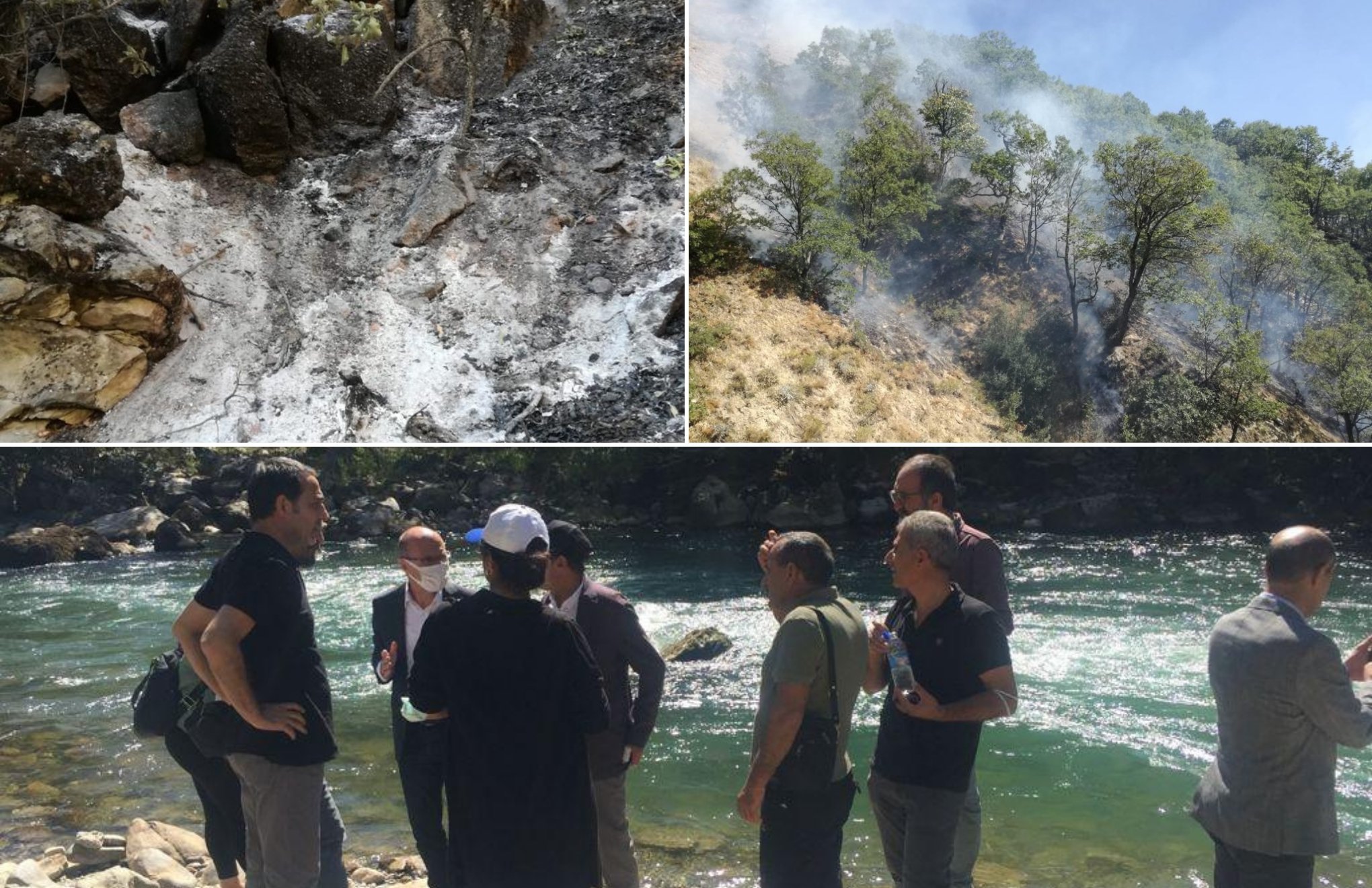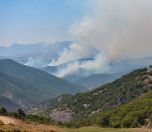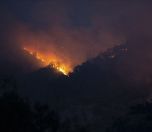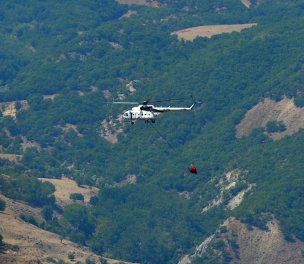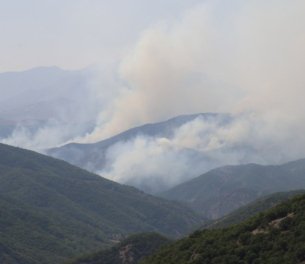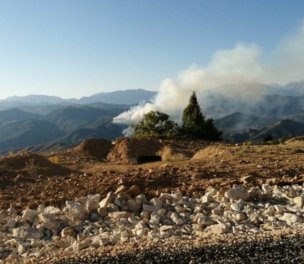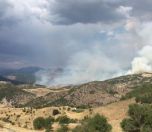* Photos: KESK
Click to read the article in Turkish
Following the forest fires that raged across Turkey's eastern province of Dersim, the executives of the Confederation of Public Employees Trade Unions (KESK) and its affiliated unions went to the region and prepared a report based on their examinations and observations.
The KESK has recalled that "the forest fire that broke out in Koçeri hamlet in Kuru Kaymak village in Dersim's Hozat district on August 17 after a military operation was allegedly responded only 13 days later and that the citizens who wanted to respond to the fire were allegedly prevented by soldiers strengthen the relation of security-depopulation-forest fires."
The KESK report has indicated that 140 hectares of land were affected by the fire in the Fırtına Veli area in Munzur Valley, noting that not only was the vegetation cover in the area raged, as is alleged by the governor, but century-old trees were burned in the fires as well.
"As the response to the fire was very belated, hundreds of junipers and oaks were burned, since junipers' roots, their natural protection against fires, were burned," the KESK has explained further.
According to the local sources speaking to the KESK, 340 hectares of land were razed in fires in the Hozat area.
'Villas in the West, check-points in Dersim'
The KESK report has shown that several institutions and people who spoke to the KESK representatives have indicated that the fires that break out in Dersim systematically increase in the periods when policies of security are pursued and firefighting efforts are not made at all or made very late amid the pressure of the people/public in these periods of security policies.
"While villas are swiftly built in western provinces after fires, the fact that massive security departments called 'kalekol' are built in Dersim confirms this common idea and judgement," the report has said.
Referring to the high-security check-points (kalekol) further, the KESK report has underlined that "these check-points built in the name of security policies also mean ecological destruction because they - like the safeguarded castles of the medieval times - are located at commanding heights, the forestlands in the areas where they are built have been trimmed off and the forests and highlands in their vicinity have been declared security zones, where civilians are not allowed to enter."
According to the KESK, "this point of view, which has been purely reduced to security, has two aims: One of them is to remove the trees so that the kalekols' field of view will be extended as much as possible. In this way, it is aimed to eliminate a possible danger that might come from the other side. The second aim is to make it harder for the local population to access natural resources, and to even completely prevent their access to these resources, so that the depopulated area can be controlled."
Concluding its report on forest fires in Dersim, the KESK has also listed a series of recommendations within this context. (KÖ/SD)




